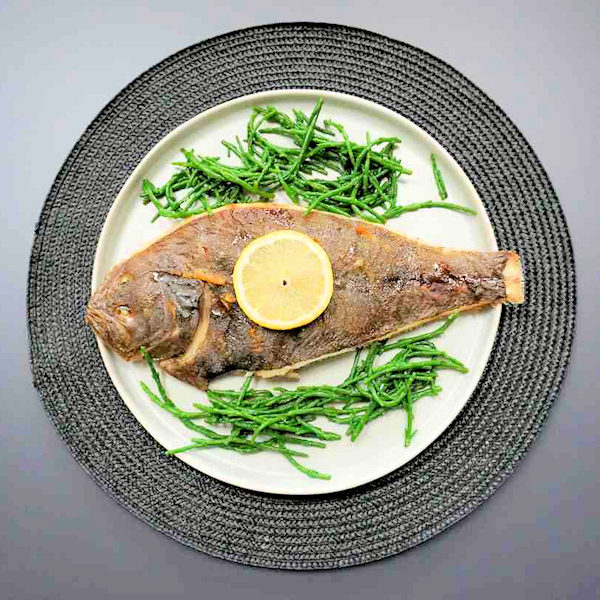Apparently the consumers in the UK are raring to try all, sustainable but delicious, unusual but healthy kinds of fish. It’s the nasty supermarkets that stop us from trying rare delicacies, stocking only 5, convenient to store and handle, kinds of seafood: salmon, cod, haddock, prawns and tuna.
Personally, I think it’s a load of codswallop. Demand triggers supply, no matter how easy to store. If enough people asked for huss or megrim at the fish counter, the management would make sure it was stocked.
No, the reason I’m afraid is less flattering to the general public. Most of us would rather not put the whole fish in our trolleys because we wouldn’t know how to handle and prepare it or are squeamish about fins, guts and (in particular) eyes. A bit like my mother whose diet was a peculiar combo of vegetarian and shapetarian: she would eat meat only if she couldn’t discern the shape of animal parts on her plate. Hypocritical, I know. Meatballs were always a hit.

So as long as the fish is a fillet, preferably skinless and boneless, and the prawns shelled and deveined, British pescatarians are happy.
And that means forgoing a multitude of wonderful dishes, and easy to prepare as well! Even more familiar fish are easier to cook whole (I’m not talking about cod or tuna) and work out much cheaper. Like whole lemon soles roasted with lemons, whole balsamic grilled bream, brill or roasted sea bass.
And there’s so much more. Monkfish is completely boneless, and fabulous, be it spiced or cooked with chorizo. Rainbow trout is cheap as chips and full of omega-3 fatty acids; you can grill it whole with Thai flavours. Likewise mackerel, both fresh and smoked: high in nutrients, low in price. Smoked mackerel is excellent in main course salads and fresh can be cooked whole or pan fried in fillets.
Sprats or whitebait are actually easier to clean than prawns. And red mullet, a summer fish, grills in minutes and has unbelievably gorgeous, flaky texture.
Even if you want your big fish fillet, go for now more sustainable (though pricey) Atlantic halibut or haddock. You can use both types of fish in the recipes for halibut with braised leeks and the one for miso haddock.
And seafood: it’s not just prawns, you know. There’s crab, UK-caught and sustainable that can be turned into salads or spreads. There are scallops that seem expensive until you realise there’s no waste with them. There are mussels to cook with curry sauce and squid which you can buy already cleaned and cut into rings.
And of course there is lobster, as long as you know that it’s stupid to demand it outside summer months when it’s relatively the cheapest.
Hope this bunch of ideas will help you think twice before you reach for another twin fillet pack of salmon for your fish supper!